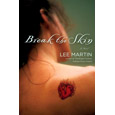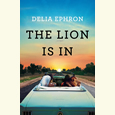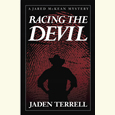Poetry in the Air
On the weekly radio show “Difficult Listening,” David M. Harris shares poetry, music, world news, advice, and memories
Broadcast on Sunday mornings from 10 a.m. to noon, Radio Free Nashville’s “Difficult Listening” program centers on poets, living and deceased. The title of the show refers to a work by performance artist Laurie Anderson which plays on the term “easy listening” as a description of inoffensive music. “Difficult Listening” is hosted by David M. Harris, who shares Anderson’s flair for illuminating the eccentric, absurd, and profound details of art and life. Harris, a writer himself, reads aloud from the work of contemporary poets and offers his own interpretations. The show also features his own recollections, advice to listeners, world news, and various types of music.
Harris recently answered questions from Chapter 16 via email:
 Chapter 16: “Difficult Listening” draws from a wide, rich array of media and references, including artists, songs, current events, and your life. How do you weave everything together?
Chapter 16: “Difficult Listening” draws from a wide, rich array of media and references, including artists, songs, current events, and your life. How do you weave everything together?
David M. Harris: One of the reasons I never made a success of academia is my inability to sit down and focus on a single subject. The universe of knowledge is like the game Six Degrees of Separation. I have all this weird stuff in my head (including the fact that I was, at one time, three degrees of separation from Mao Zedong), and it keeps associating with whatever I encounter afresh. And that means there’s no conscious process of curation—I just read the poems and say whatever comes into my head.
Chapter 16: Frequently you offer advice in the context of your own experiences and opinions. On the 2011 show highlighting poems by Dorothea Tanning, for example, you recited her poem “To the Rescue” and then extemporized about its meaning, including summarizing your M.F.A. graduation speech and urging listeners to be thankful for all of our “day-to-day servants.” Are you ever surprised by what you reveal?
Harris: All writing is moral writing, so I raise moral issues—in this case, gratitude towards those who invisibly make our lives better. In one sense the structure of the program is pretty rigid. I open with announcements, read something, and then play music. But I don’t read the books in advance unless I’ve done an interview with the author. So what I say on the air is my first response to the poems, and that response is, much of the time, personal. How does this poem relate to my experience? I never know what I might say.
Chapter 16: How has hosting this program influenced your own writing?
Harris: I don’t think you can write well without reading widely and profusely. Hosting the program has meant that I encounter new work, usually from new poets, every week. In graduate school I encountered the idea of intertextuality—texts are related to each other and react to each other. For your own work to take part in that game, in that culture, you have to know what is going on in the world of other people’s writing.
 I rarely get ideas for poems from other people’s poems, but I get ideas about how to write poems. When I was talking with David Kirby, we came up with the idea of “permission.” Other people’s successful poems give us permission to try new techniques. We can’t all be revolutionaries, but someone has to come after the revolution and consolidate its achievements. I’m one of those, and I don’t mind.
I rarely get ideas for poems from other people’s poems, but I get ideas about how to write poems. When I was talking with David Kirby, we came up with the idea of “permission.” Other people’s successful poems give us permission to try new techniques. We can’t all be revolutionaries, but someone has to come after the revolution and consolidate its achievements. I’m one of those, and I don’t mind.
Chapter 16: How do you choose your featured poets?
Harris: Most of the time I don’t. My producer, Judy Jacobs, knows what kind of poetry I can work with and enjoy. She picks the books, and I pick poems on the fly during the show. I try to read two or three shorter poems in each segment, and comment. We also include poets who come to town to do readings. We set up an interview, and I play that in the first hour and read from the poet’s latest book in the second.
Chapter 16: Who is your intended audience?
Harris: I always assume that no one is listening. But I pretend that there’s an audience, one that knows something about poetry. Sometimes I ask people to write in and ask questions or offer comments, but they never do. (I did get one email from someone who liked the show except for the poetry.) One of the advantages of community radio is that we don’t have to worry about pleasing advertisers. If no one is listening today, maybe someone will tune in next week. We seem to have one regular listener in Denver, who listens through the web site, but as far as I know that may be our entire audience. Many of our archived shows are getting downloads, though.
Chapter 16: What are your goals for the program?
Harris: I’m open to ideas. The show is one of my activities in promoting poetry in the community and I’ll keep doing it until it gets boring. There are no signs of that yet.

Sarah Norris holds an M.F.A. in creative nonfiction from Sarah Lawrence College and has reviewed books for The Daily Beast, Christian Science Monitor, San Francisco Chronicle, and Village Voice, among other publications. She lives in Nashville.





